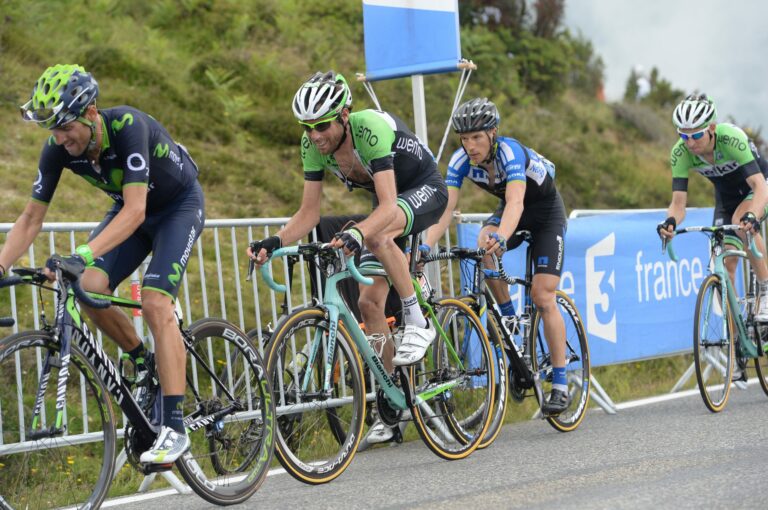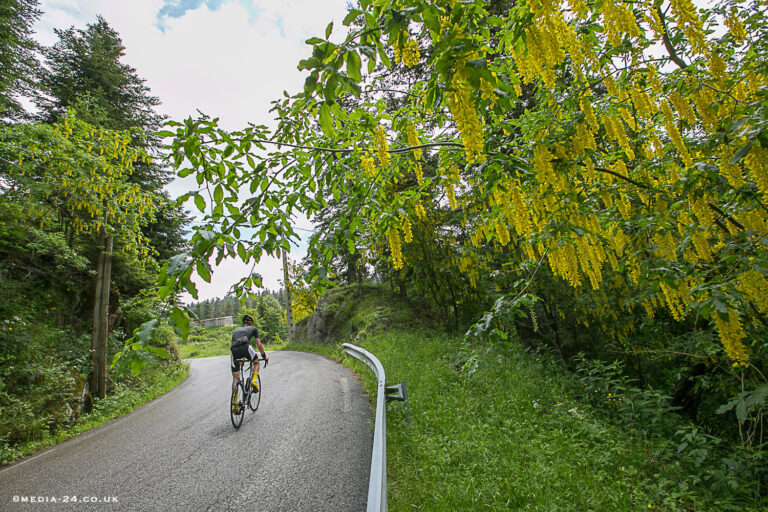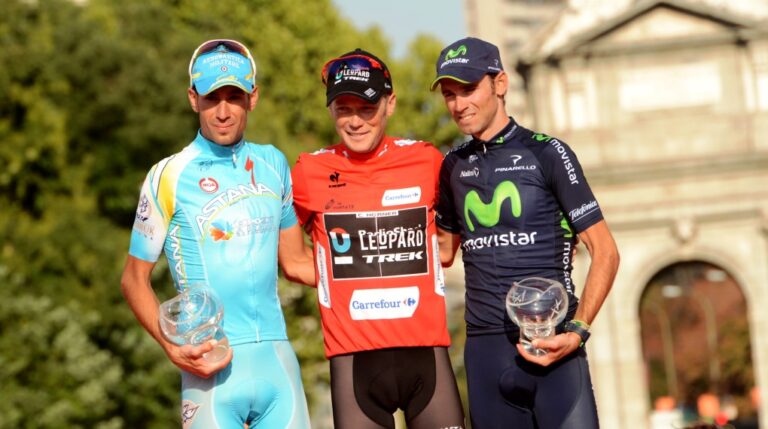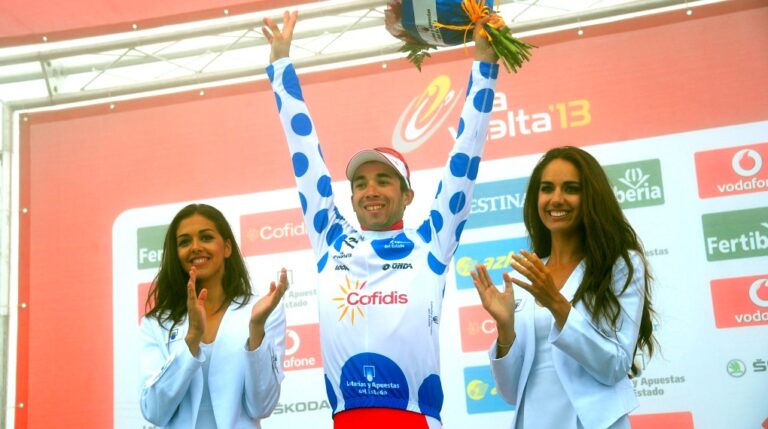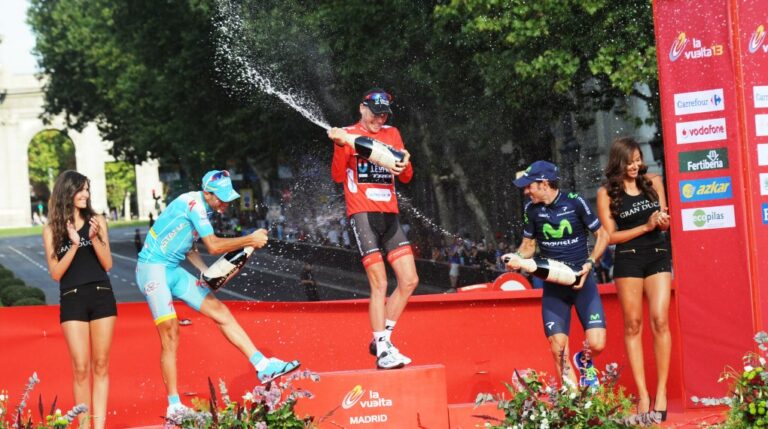The truck is his office.
The banal accoutrements of most workspaces are notably absent, however: you’ll find no staplers, wall charts, or filing cabinets here. Instead, sprockets sprout from racks like rare mechanical foliage. Chainrings hang from the wall, but their presence and purpose is far from decorative. Carbon wheels of varying depths are racked in neat lines next to them, sheathed in soft rubber glued to the rims. Expensive tool chests are filled with expensive tools. And there are bikes, still more expensive. Lots of them.
Tomas Amezaga is a busy man. There are 45 new bikes in his care, five steeds each for the nine riders who comprise Movistar’s Tour de France team. Amezaga will place three road bikes and two time trial machines at the disposal of each rider, from team leader, Alejandro Valverde, to super domestique, John Gadret.
Visit the start town of any WorldTour race, never mind the Tour de France, and the mechanics’ truck will be surrounded. Amezaga and his colleagues must remain calm. Their cause is aided by long days and early starts. By the time the punters glimpse the gleaming machinery produced from the back of the truck, their hard work is done: each bike washed, dried, lubricated, and fettled to within an inch of its life.
This is cycling at the sharp end. The condition of the machines has more than the athlete riding on it. Bike manufacturers pay handsomely for the privilege of supplying a WorldTour team, an inconvenient truth buried in the annual accounts of both parties, team and supplier. The vast sums give the lie to the claim that bike ‘x’ is the choice of ‘y’ rider. Ask the men who fit the stars to their steeds: their only concern is that it feels like the last one.
Amezaga must be cognisant of the riders’ demands, their preferences, the idiosyncrasies on which they are likely to have based, in part, a career. His work will be tested for up to six hours each day, at speeds that make safety as important a consideration as efficiency. Television cameras will linger over any mechanical failure, and the men who prepared the bike will be at the centre of the post-mortem, whether the disaster is their fault or no.
There is no respite for men like Amezaga while the race is on. Frequently, the mechanics are called upon to accompany the directeur sportifs in the support cars. When crisis is reached, they must respond with alacrity and calmness, first on the scene, but with a head sufficiently clear to diagnose the problem and send the rider on his way. “Normally, we don’t have many problems,” Amezaga explains. “Some punctures only.” Should the issue require more time consuming remedy than a new wheel, a spare bike, typically, is plucked from the roof. This also will have been prepared by the mechanics, and to the same level as the race bike.
Those who are not seconded to the team car make their way to the arrivée, there to resolve any residual issues and to welcome the riders home. When their charges have showered, eaten, been massaged and retired to bed, the mechanics will still be at work. Amezaga understands well the demands of his trade. There are few easy jobs in professional cycling, but after the riders, the mechanic is likely to work as hard as any in the organisation.
Tomas Amezaga film by Prime and Fire for O2 Priority

